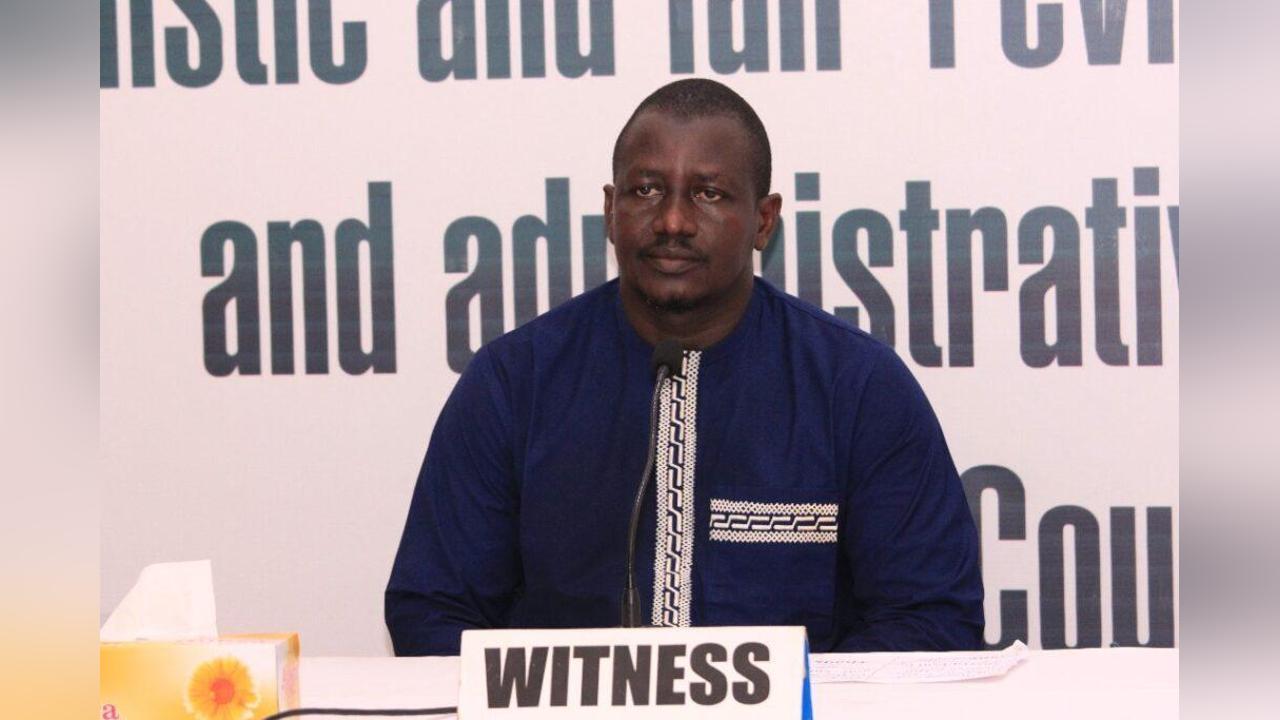Africa-Press – Gambia. Landing B. Sanneh, Chairman of the Mansakonko Area Council, faced intense questioning before the Local Government Commission of Inquiry regarding alleged insider dealings in the council’s vehicle auction. Evidence presented to the commission suggests that council staff may have acquired vehicles at prices significantly below their market value.
During his testimony, Chairman Sanneh denied purchasing any of the auctioned vehicles himself. However, he conceded that the established procedures for the auction were not fully adhered to, despite the auction itself being approved by the council.
Chairman Sanneh stated that the process became problematic after the general council delegated the auction to the contracts committee and the Chief Executive Officer (CEO). He indicated that this delegation marked the beginning of what he termed “misappropriation” within the process.
He informed the commission that while he was generally aware of the auction’s initiation, the specific procedures and the ultimate outcome of the sale were not adequately reported to his office. When pressed on this lapse, Sanneh explained that he would not typically be involved in the initial stages, as the CEO and the contracts committee were responsible for providing him with regular updates. He noted, however, that this feedback was not forthcoming until the finance committee and the general council raised concerns about the auctioned vehicles.
Upon these concerns being brought to his attention, Chairman Sanneh said he followed up with the CEO and the finance department to obtain the necessary information.
“I reported it at the general council, and the general council requested that a report and payment of all the vehicles be provided because they realized that the money was not forthcoming,” Chairman Sanneh testified.
Lead Counsel Patrick Gomez explained to Chairman Sanneh that the issue extends beyond just the money—it also involves a failure to follow proper procedures. “They could have paid the money in full, but that will not account for the true value that the vehicles were sold to them,” Counsel Gomez stated.
The counsel also noted that there had been no assessment of the vehicles slated for disposal, no approval from the GPPA, and no documentation on the condition of the vehicles prior to their disposal.
He further stated, “Not only were they corrupt in adopting a procedure that they knew was wrong, but they are also causing economic loss because the person selling is the person buying. Don’t you see a problem in that?”
Chairman Sanneh agreed with Counsel Gomez. When asked why he hadn’t addressed the issue earlier, Sanneh explained that at the time, he was unaware that staff members were the ones purchasing the vehicles.
Counsel Gomez acknowledged the point raised but clarified that once the chairman and the General Council became aware of the issue, their immediate priority was to recover the lost funds. He further explained that the Council later uncovered that the potential losses could have been as much as five times greater than the amounts paid by the buyers, stating, “because they do not have an auction in the first place.”
Counsel Gomez informed Chairman Sanneh that disciplinary action could have been taken against the staff involved.
The witness agreed, noting that the issue may have been overlooked because he and the councillors lacked experience in auctions. He acknowledged it as an oversight on their part.
“You know the person selling cannot be the person buying, because remember, you are selling what does not belong to you. You are entrusted by the people to sell on their behalf,” the counsel said.
Counsel Gomez went on to emphasize that council employees should only be considered as a last resort for asset disposal.
Chairman Sanneh agreed, stating that measures should have been implemented to penalize those involved.
“We did not do that; we were so much more focused on the money than the action to punish those who were selling at the same time buying,” he concluded.
For More News And Analysis About Gambia Follow Africa-Press






